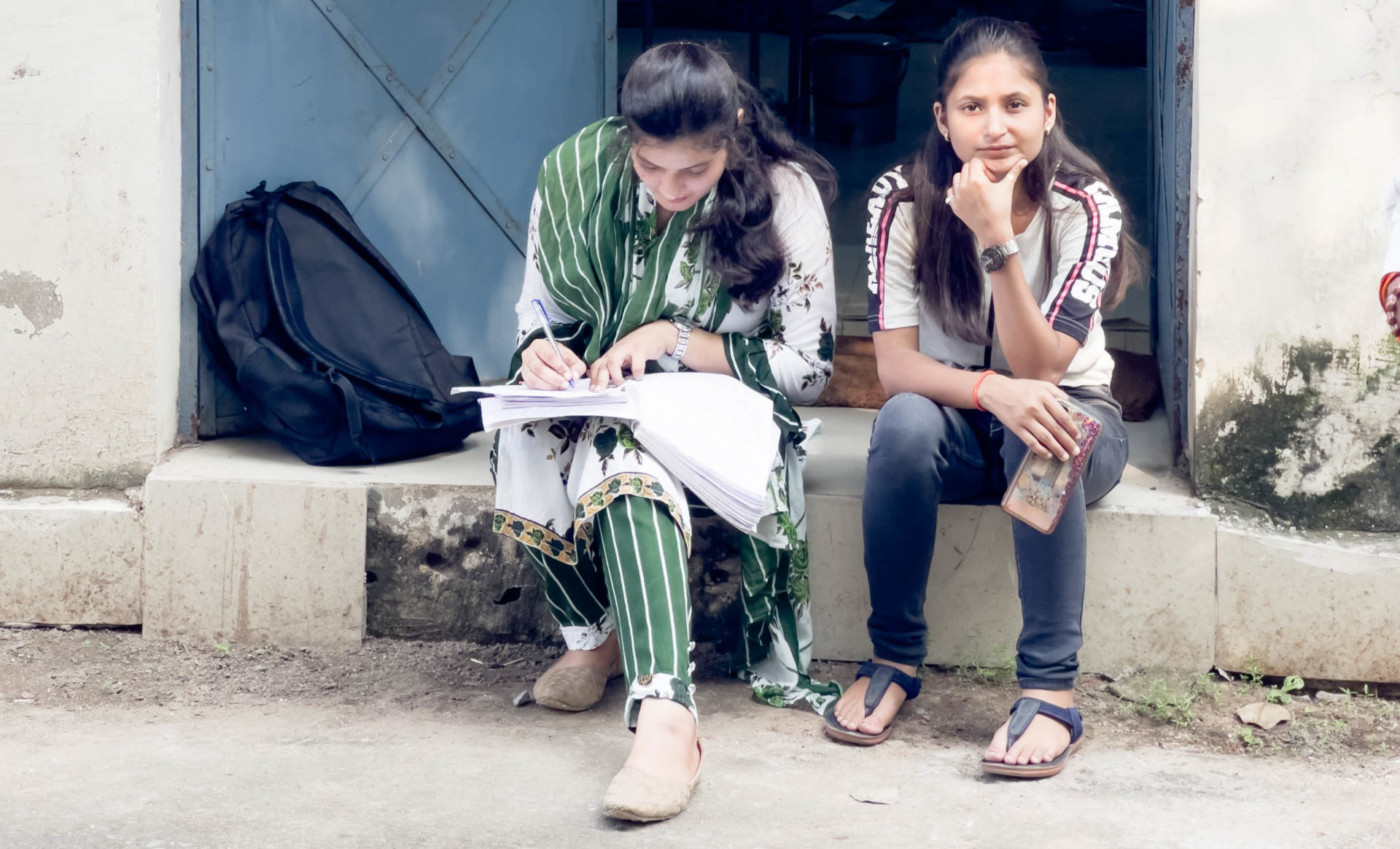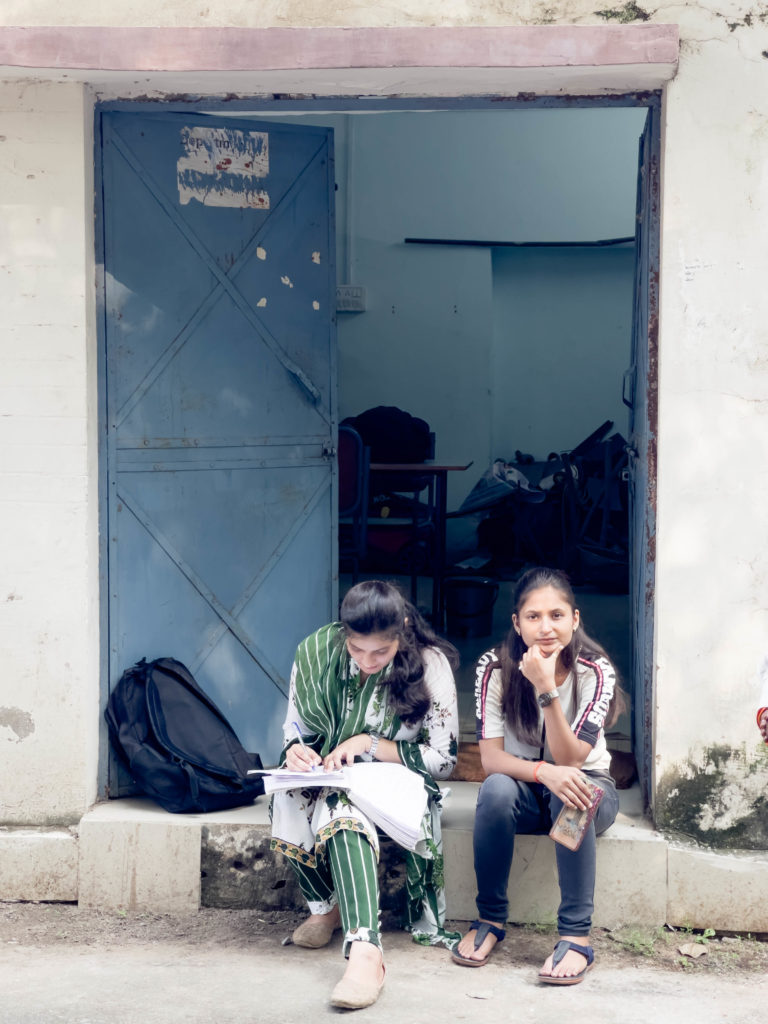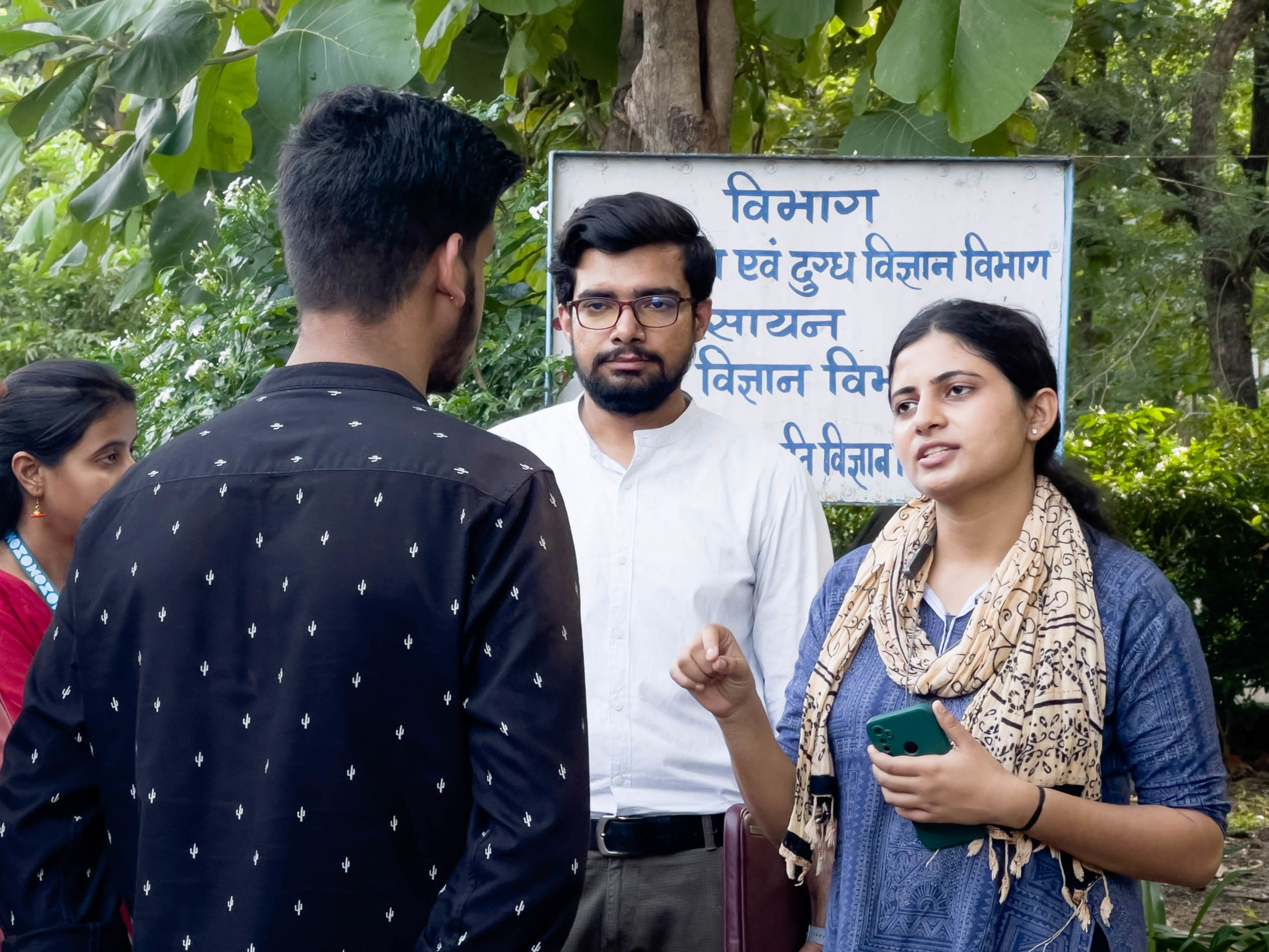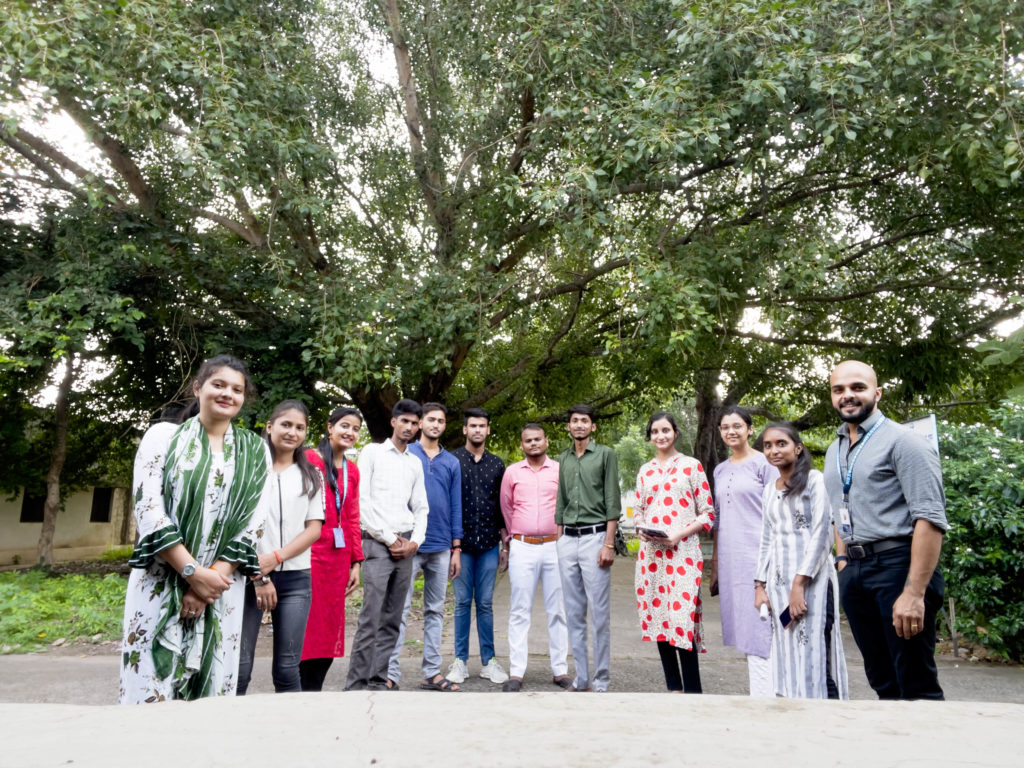
Moving on from the Sarkari Naukri hype
It has been ten years, and students’ Sarkari Naukri interest remains unchanged.
That’s what I first thought to myself when a teacher in Kanpur shared that most of her students either go for civil services or higher education (i.e., to become government teachers).
It was my first time visiting colleges in Kanpur, Jhansi, and Banda, where Medha is helping youth build 21st-century skills, get workplace exposure, and network with like-minded peers. As the trip progressed, the rest of my experiences challenged my first impression.

More than a handful of career interests
When I spoke to students on the field, some expressed interest in preparing for government service. But many talked about doing an MBA, earning dollars as an online freelancer, becoming a coder, or simply getting a desk job. One student shared a unique interest, “I’m a spirituality influencer on Facebook.”
In Banda, almost half of the students I met wanted to start a business in agriculture. They were either studying for Masters or looking for a private job – but that was a means to building enough experience and capital for business. One of them had a specific demand, “I want tips on starting businesses in dehat on LinkedIn.”
At some point, we interviewed a group of 8 students. While one student answered every question promptly, another kept quiet through nearly all of them. Some had traveled barefoot from home to college, observing a Navratri festival tradition. In contrast, a few others stood in faux-leather shoes.
My point is when young people have diverse customs, behaviors, and interests, their career pathways must be diverse too. But as I learned from the trip, one of the reasons they ended up pursuing similar, traditional careers was a need for “proof of concept” before trying something new.

Show me it’s possible, and I’ll make it happen
Many students who wanted to become doctors, engineers, or IAS officers, were doing so partly because they had watched their fathers, uncles, or elder brothers (I didn’t hear of any women figures) succeed on that path before them.
Among those who picked something unconventional, there was a clear need for successful examples – is there someone else who’s done this before me? How can I take inspiration and learn from them? Unsure about going it alone, they were looking for the confidence that comes with a tried and tested formula: show me it’s possible, and I’ll make it happen.
It made sense to look for assurance when trying something new. Because despite some career options being competitive, costly, and risky (like medicine or civils), it’s when someone from your family, extended circle, or a similar background chooses them that the newness fades away to leave a buoyant curiosity: how can I best do this?
The kind of relatable exposure that students were looking for reminded me of ‘nurturing’ – a concept shared by Sharath, who started the STiR Foundation.
“A nurturer keeps young people deeply motivated throughout their lives. They accept young people for who they are and help them be the best version of themselves by understanding their motivations and strengths. They impart connections, social capital, and a way of seeing the world differently, so young people see their lives and futures differently.” – Sharath.
During the trip, I found that many Medha facilitators had practiced nurturing. They provided familiarity and encouraged students like nurturers do – showing support at the right time, sharing resources as needed, and driving connections for career take-off and beyond.
In Jhansi, facilitators had helped a young woman alum shadow an upcoming women entrepreneur from a similar background. They had connected aspiring agripreneurs to an agri start-up with a mission. These were unique and interest-driven opportunities that change a person’s career trajectory and help them chart offbeat paths – sustainably.
In Kanpur, facilitators had counseled an alum through an exceptionally tough time, in which she chose to leave her job to be a parent’s primary caregiver. After a hiatus, she was now back at her second teaching job.

Being there for young people when they want
Young people’s interests are constantly changing. My experience suggests they’ve moved on from the Sarkari Naukri hype. What is needed is that as parents, teachers, employers, and advocates, we move with them, too. As advocates for youth to build the careers they want, we must go beyond campus placement drives for 9-to-5 jobs to bring diverse opportunities, drive connections with entrepreneurship and freelancing mentors, and support new businesses.
And to be there for youth when they want – be it in responsibly preparing for civils or becoming a content creator – that’s all I found the students asking for.
This story is a part of Field Notes, a series where Medha team members share their opinions and experiences from working on the field.